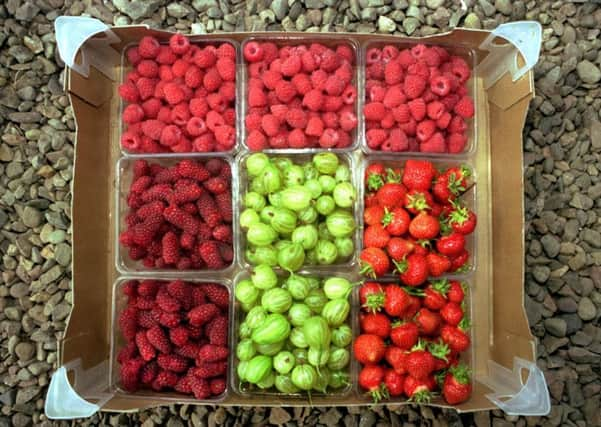Voice of practical farmer no longer heard on JHI board
This article contains affiliate links. We may earn a small commission on items purchased through this article, but that does not affect our editorial judgement.


Stretching back into the roots of the research station there has been one fundamental constant: There has always been a practical farmer or farmers on the board of directors. From the beginning this reflected a clear and unambiguous link to practical farming, and offered the opportunity for the agricultural voice to be heard.
Now with Allan Stevenson of Luffness Mains, North Berwick, having served his term on the board, there does not seem to be anyone sitting at the top table to provide practical knowledge of the farming industry.
Advertisement
Hide AdAdvertisement
Hide AdThere are scientists – and pretty eminent ones – and there are those who have worked their way to the top of the tree in other spheres. This is no negative comment on any of them.
It is just that for an organisation formed out of such bodies as the Scottish Crop Research Institute and the Scottish Horticultural Research Institute, having no farming representation seems a denial of part of JHI’s history.
Developing new cultivars and husbandry techniques remains a major part of the JHI’s work. The institute is currently busy battling for funding for a major research project based on the barley crop. The JHI directors with scientific backgrounds will be able to give learned views on the project. Those who sit at the top table and who have come from other segments of life will broaden these views – but there will be no one on the board who has, in practical terms, tried to bite a pea of barley to see if it is ready to harvest.
It may be that when the JHI was casting around for new directors, no applications (or worthwhile applications) came from those earning a living from the land.
That may point to a lack of adequate reward for doing a tough job – the institute is facing financial pressure, it is not allowed by the Scottish Government to have compulsory redundancies and the logistics of the tie-up between Aberdeen and Dundee continues to create headaches – but, as it stands, it does not have a farmer at the top table.
This lack of an agricultural presence has also been noted on social media this week, when some “mud on the boots” commentator noted there was no farmer invited to speak at a forthcoming conference on biodiversity in Scotland’s countryside.
Cue rage among the keyboard warriors. This was graphically underscored in the list of other speakers and their non-farming credentials. The birdy people will be there. The forestry representatives will be there. A whole host of environmental bodies will be present.
Advertisement
Hide AdAdvertisement
Hide AdThe keynote speaker will be the Scottish Government environment minister, Roseanna Cunningham – but, as is widely known, she is no great lover of the farming community.
There were twits and tweets from the farmers wondering how they could be excluded from such a gathering of environmental lobbyists. “Did people not realise we (farmers) look after the countryside” they fumed self-importantly in their short, sharp electronic contributions.
It appears the company behind the conference did not invite any representation from NFUS. It also appears that the union hierarchy did not consider the £200 plus VAT fee for attending the conference was value for money.
Tomorrow NFUS will elect its new leadership team. Those about to sit in the union top seats will face a host of issues arising from Brexit. But whoever will be in the leading trio should also be aware of the danger from farming slipping down, and off, the agenda of research institutions and conference organisers.
If that voice were to be silenced, it could create an inherent weakness in the collective governance of valued organisations which have long been associated with the land and its production.
